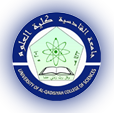Document Type
Original Study
Abstract
Background: The immune response to tuberculosis infection involves the activation of many immune cells and the production of cytokines such as IL-1β. IL-1β is thought to be crucial for the immune system's reaction to TB. Production of IL-1β from infected lung cells by M. tuberculosis draws and activates immune cells including macrophages and T cells to the infection location. Then, these immune cells go to work containing and getting rid of the germs.
Aim of the study: To assess the impact of Interleukin 1beta (IL-1β) in Iraqi patients with pulmonary and extrapulmonary tuberculosis.
Patients and methods: The patient’s group includes seventy-five tuberculosis-infected individuals, While the control group includes twenty-five healthy apparent individuals. The blood and sputum samples were collected from each group. a sputum sample was used for acid-fast stain while blood was used for measurement of IL-1 β by ELISA technique according to the construction method of the kit from (Sunlong-Biotech company).
Results: The present investigation demonstrated a statistically significant reduction in IL-1 β levels (18.841±2.722) among tuberculosis patients as compared to the control group (20.638±1.972), with a P value (P>0.021). The level of IL-1β P value (P>0.253) does not significantly differ between pulmonary and extrapulmonary tuberculosis.
Conclusion: This study concludes that individuals with low levels of IL-1β may be more susceptible to tuberculosis infection, while the level of this interleukin hasn’t a role if the infection is pulmonary or extends to extrapulmonary tuberculosis.
Keywords
Interleukin 1beta (IL-1 β), Mycobacterium tuberculosis, Tuberculosis
Recommended Citation
Khaleel, Bilal; Rafaa, Huda; and Asmar, Ahmed
(2024)
"A Comparative Study of Interleukin 1beta (IL-1 β) Levels in Pulmonary and Extra-Pulmonary Tuberculosis Patients among Iraqi Population,"
Al-Qadisiyah Journal of Pure Science: Vol. 29
:
No.
1
, Article 15.
Available at:
https://doi.org/10.29350/2411-3514.1246
Creative Commons License

This work is licensed under a Creative Commons Attribution-NonCommercial-No Derivative Works 4.0 International License.










